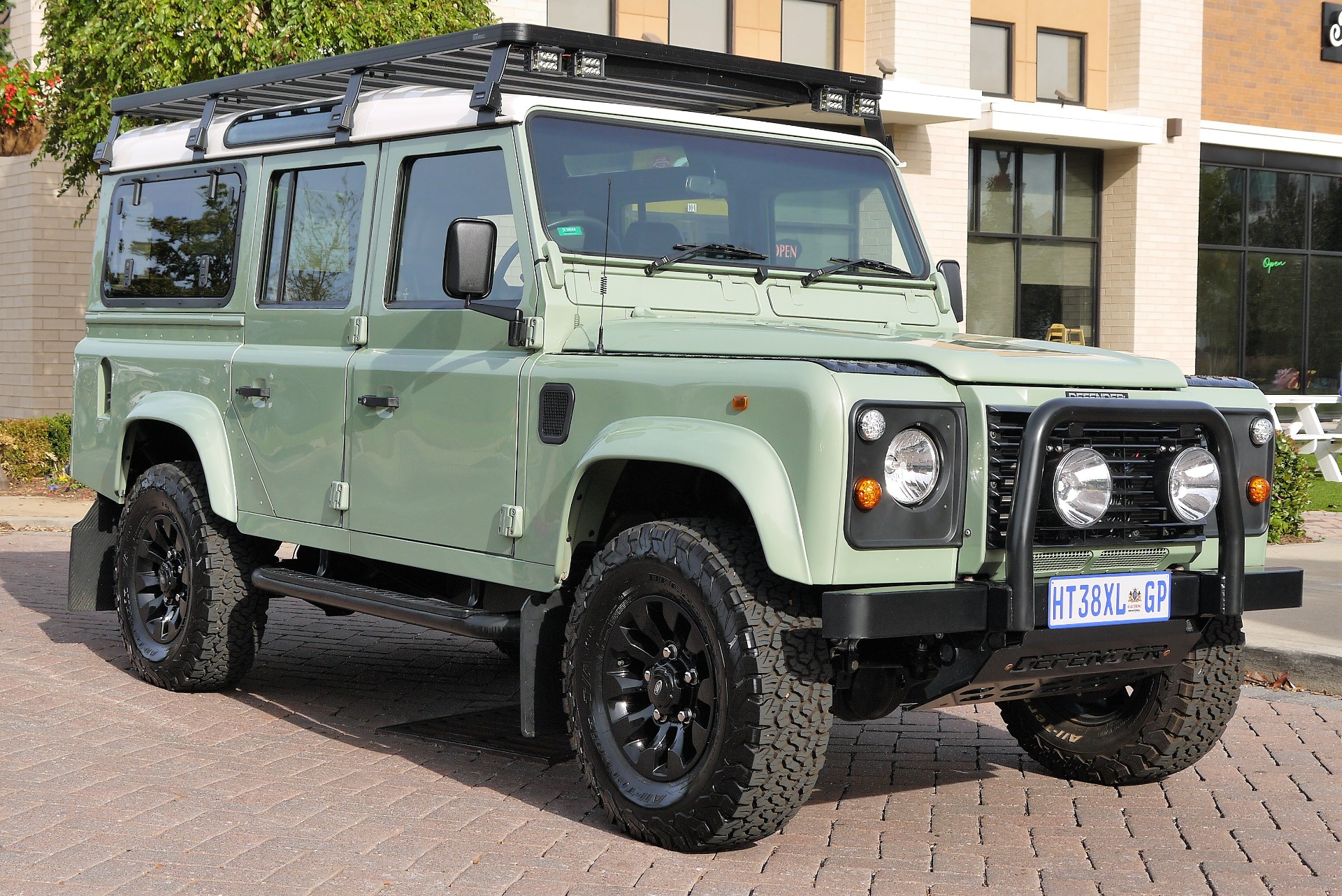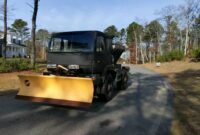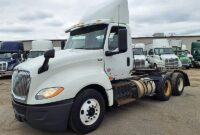Used Food Trucks For Sale: Your Comprehensive Guide to Culinary Mobility sale.truckstrend.com
In the vibrant, ever-evolving landscape of the modern culinary scene, food trucks have carved out a significant and beloved niche. They represent agility, innovation, and a direct connection between chef and customer, bringing diverse flavors to bustling city streets, corporate parks, and special events. While the allure of a brand-new, custom-built food truck is undeniable, the steep initial investment can be a formidable barrier for aspiring entrepreneurs. This is where the world of used food trucks for sale enters the picture, offering a compelling, cost-effective, and often faster pathway to realizing your mobile gastronomic dreams.
Purchasing a pre-owned food truck isn’t merely about saving money; it’s about smart business strategy. It allows you to enter the market with reduced overhead, test concepts, and adapt quickly, all while potentially inheriting a vehicle that’s already street-legal and equipped for immediate operation. This comprehensive guide will navigate the intricate process of buying a used food truck, providing you with the knowledge and tools necessary to make an informed and successful investment.
Used Food Trucks For Sale: Your Comprehensive Guide to Culinary Mobility
Why Buy a Used Food Truck? The Allure of Pre-Owned Mobility
The decision to opt for a used food truck over a new one is often driven by several compelling advantages that directly impact a new business’s viability and speed to market.
- Significant Cost Savings: This is, arguably, the most attractive benefit. A brand-new, fully customized food truck can easily cost upwards of $100,000 to $200,000 or more. A well-maintained used truck, depending on its age, condition, and equipment, can be acquired for a fraction of that price, often ranging from $20,000 to $80,000. This dramatically lowers your initial capital expenditure, freeing up funds for inventory, marketing, and operational expenses.
- Faster Launch Time: Building a custom food truck from scratch can take months, involving design, fabrication, equipment installation, and inspection processes. A used truck, particularly one that’s already been permitted and operated, can be ready to roll out in weeks, sometimes even days, allowing you to generate revenue much sooner.
- Reduced Depreciation: Like any vehicle, new food trucks experience rapid depreciation in their first few years. Buying used means you avoid this initial sharp drop in value, and your investment tends to hold its value more steadily over time.
- Proven Concepts & Equipment: Some used trucks come from established businesses that are either upgrading or changing direction. This means the layout and equipment have likely been tested in a real-world environment, proving their functionality and efficiency. You might even find a truck specialized for a cuisine similar to yours, saving you extensive customization time.
- Environmental Benefit: Opting for a used vehicle is also an environmentally conscious choice, extending the lifespan of an existing asset and reducing the demand for new manufacturing.

What to Look For: Essential Inspection Checklist
Purchasing a used food truck requires meticulous due diligence. Think of it as buying two major assets in one: a commercial vehicle and a fully equipped restaurant kitchen. Both need thorough inspection.
The Vehicle Itself: Beyond the Paint Job
- Engine & Transmission: This is the heart of your mobile business. Request service records, check for leaks, listen for unusual noises during a test drive. Pay attention to mileage; while a higher mileage isn’t always a deal-breaker for a commercial vehicle, it should be reflected in the price. Consider a pre-purchase inspection by a qualified mechanic specializing in commercial vehicles.
- Chassis & Frame: Inspect for rust, cracks, or signs of structural damage, especially underneath the truck. This is crucial for safety and longevity.
- Tires, Brakes, Suspension: Check tire tread depth and condition. Test the brakes for responsiveness and any pulling. Look for signs of worn suspension components like sagging or excessive bouncing.
- Electrical System: Ensure all exterior lights, interior cabin lights, and dashboard indicators are working. Check the condition of wiring, especially if it appears exposed or frayed.
The Kitchen Equipment: The Business End
This is where the bulk of your operational success lies. Every piece of equipment needs careful scrutiny.
- Appliances (Grills, Fryers, Ovens, Refrigerators, Freezers):
- Functionality: Turn them on. Do they heat up, cool down, or operate as expected?
- Condition: Look for dents, rust, broken parts, and general wear. Are they clean and well-maintained?
- Brand & Age: Research the brands for reliability and parts availability.
- Plumbing System:
- Sinks: Most health departments require a 3-compartment sink for washing, rinsing, and sanitizing, plus a separate hand-wash sink. Ensure all are present and functional.
- Water Tanks: Check the fresh water and grey water tank sizes (usually a 1:1.5 or 1:2 ratio, grey to fresh, as per health codes). Inspect for leaks.
- Water Heater & Pump: Verify they work efficiently and provide adequate hot water pressure.
- Ventilation System:
- Hood & Exhaust Fan: Essential for removing smoke and grease. Turn it on – is it powerful enough? Is it clean? Grease build-up is a major fire hazard.
- Fire Suppression System: This is NON-NEGOTIABLE. It must be present, fully charged, and have a current inspection tag from a certified company. Without it, you will not pass health or fire inspections.
- Propane/Gas Lines: Check for leaks (use a soapy water test) and ensure all connections are secure. Verify the presence of proper gas shut-off valves.
- Generator: Is it powerful enough to run all your equipment simultaneously? Listen to it run. Check its maintenance history. Consider its noise level, as some venues have restrictions.
- Overall Layout & Sanitation: Is the workflow logical? Is there sufficient counter space and storage? Is the interior easy to clean and maintain? Look for pest issues.
Navigating the Purchase Process: A Step-by-Step Guide
Once you’ve identified potential candidates, the purchasing journey requires strategic planning.
- Define Your Needs: Before you even start looking, clearly define your menu, target cuisine, and anticipated volume. This will dictate the size of the truck, the necessary equipment, and the required power.
- Research & Locate:
- Online Marketplaces: Websites like FoodTrucks.com, UsedVending.com, eBay, and Craigslist are popular starting points.
- Social Media Groups: Facebook Marketplace and specialized food truck groups often list local sales.
- Local Dealers: Some commercial vehicle dealers specialize in food trucks.
- Auctions: Government or private auctions can offer deals, but often with "as-is" terms.
- Networking: Talk to other food truck owners; they might know someone selling.
- Initial Inquiry & Vetting: Once you find a truck that sparks interest, ask detailed questions:
- Why are they selling?
- How old is the truck and its equipment?
- What is the mileage?
- Are there maintenance records for both the vehicle and the kitchen?
- Has it passed recent health and fire inspections? (Crucial! Request copies of reports.)
- Are there any known issues or repairs needed?
- Request comprehensive photos and videos.
- In-Person Inspection (Critical!): Schedule a visit. Bring your checklist. If possible, bring a mechanic and/or a certified kitchen equipment technician. Test everything. Ask to see the truck operating under power.
- Negotiation: Most used truck prices are negotiable. Be prepared to haggle, especially if you identify issues during inspection. Factor in potential repair costs.
- Legal & Paperwork:
- Bill of Sale: A legally binding document detailing the sale.
- Title Transfer: Ensure the title is clear and transferable. Check for any liens on the vehicle.
- Vehicle History Report: Get a Carfax or similar report for peace of mind.
- As-Is Clause: Most used sales are "as-is." Understand what this means for your liability.
- Financing: Explore your options. Banks, credit unions, and specialty equipment lenders offer commercial vehicle loans. SBA loans are also a possibility for small businesses.
- Insurance: You’ll need commercial vehicle insurance and general liability insurance before you can operate.
- Permits & Regulations: This is paramount. Before finalizing the purchase, contact your local health department and fire marshal. Show them the truck’s layout and equipment specifications. Ensure the truck meets ALL local codes. A truck perfectly compliant in one city may not be in another. This step can save you from purchasing a very expensive paperweight.
Types of Used Food Trucks and Their Specialties
The world of food trucks is diverse, with various configurations suited for different culinary ventures.
- Full-Service Kitchen Trucks: The most common type, these are typically 18-26 feet long, offering ample space for a range of cooking equipment (grills, fryers, ovens, multiple refrigeration units) and a full menu. Ideal for varied cuisines from tacos to gourmet burgers.
- Coffee/Beverage Trucks: Smaller, often equipped with espresso machines, blenders, dedicated water lines, and display cases for pastries. Focuses on high-volume beverage service.
- Dessert/Ice Cream Trucks: Specialized with soft-serve machines, dipping cabinets, freezers, and often brightly decorated exteriors.
- BBQ Smokers/Trailers: Often larger, heavy-duty trailers designed to house large smokers. The truck itself might just be the tow vehicle, with the kitchen primarily in the trailer.
- Food Carts/Kiosks: While not "trucks," these smaller, mobile units are a very low-cost entry point, suitable for simple menus like hot dogs, pretzels, or specialized coffee.
- Retro/Vintage Trucks: Classic vehicles (e.g., Airstream, old step vans) converted into food trucks. While aesthetically unique and popular for branding, they often require more mechanical and structural restoration.
Your chosen cuisine and business model will dictate the most appropriate type of truck and its necessary equipment.
Potential Challenges and Solutions
While buying used offers many benefits, it’s not without its potential pitfalls. Being aware of these and having solutions in mind can save you significant headaches and money.
- Hidden Mechanical Issues: A truck might look good, but internal engine or transmission problems can be costly.
- Solution: Always get a pre-purchase inspection from a trusted, independent mechanic specializing in commercial vehicles. Request detailed maintenance records.
- Equipment Malfunctions: Kitchen equipment can be temperamental, especially if old or poorly maintained.
- Solution: Test every single piece of equipment during your inspection. Factor in a budget for immediate repairs or replacements for critical items.
- Permit Non-Compliance: A truck that passed inspection in one jurisdiction might not meet the codes in yours. This is the most common and expensive pitfall.
- Solution: Crucially, consult your local health department and fire marshal before purchase. Show them the truck’s blueprints or detailed photos. Get their preliminary approval in writing if possible. Understand all local regulations regarding generator noise, water tank sizes, fire suppression, etc.
- High Mileage/Wear and Tear: An older truck with many miles might require more frequent maintenance.
- Solution: Balance the initial cost savings with potential ongoing maintenance expenses. A lower purchase price should reflect anticipated future costs.
- Financing Difficulties: Lenders might be hesitant to finance older or heavily used vehicles.
- Solution: Explore specialized equipment lenders. Have a strong business plan. Consider an SBA loan or personal financing if traditional avenues are difficult.
- Overlooking the Generator: An undersized or unreliable generator can cripple your operations.
- Solution: Ensure the generator’s wattage capacity exceeds the combined needs of all your equipment running simultaneously. Test it under load.
Used Food Trucks For Sale: Sample Price Guide
The prices for used food trucks vary dramatically based on age, condition, size, equipment included, and the overall market. The table below provides a general estimate, but actual prices will fluctuate.
| Truck Type / Description | Condition | Year Range | Estimated Price Range (USD) | Key Features Included (Typical) | Potential Downsides |
|---|---|---|---|---|---|
| Basic Starter Truck | Fair | 2000-2010 | $20,000 – $45,000 | Small grill, fryer, fridge, 3-comp sink, hand wash, basic generator | High mileage, older equipment, potential for immediate repairs |
| Mid-Range Workhorse | Good | 2010-2015 | $45,000 – $75,000 | Larger cookline, commercial fridge/freezer, good generator, AC | Moderate mileage, some wear, may need minor upgrades |
| Premium/Specialized Truck | Excellent | 2015-2020 | $75,000 – $120,000+ | Full commercial kitchen, top-tier appliances, low mileage, built-in | Higher initial investment, still used |
| Coffee/Dessert Truck | Good | 2010-2018 | $30,000 – $60,000 | Espresso machine, blenders, display cases, smaller refrigeration | Limited to specific menu types |
| BBQ Trailer (w/out tow truck) | Good | 2012-2019 | $25,000 – $55,000 | Large smoker, prep area, limited interior cooking | Requires separate tow vehicle, less mobile than a truck |
Disclaimer: These are approximate price ranges and can vary significantly based on location, specific equipment brands, maintenance history, and market demand.
Frequently Asked Questions (FAQ)
Q1: How much does a used food truck typically cost?
A1: Prices range widely, from as low as $20,000 for a basic, older model to over $100,000 for a nearly new, fully equipped, premium truck. The average range for a good condition, well-equipped used truck is $40,000 to $80,000.
Q2: Where are the best places to find used food trucks for sale?
A2: Online marketplaces like FoodTrucks.com, UsedVending.com, eBay, and Craigslist are common. Also, check local commercial vehicle dealers, specialized food truck brokers, Facebook food truck groups, and even government/private auctions.
Q3: What permits do I need for a food truck?
A3: This varies significantly by location. You’ll typically need permits from your local health department, fire marshal, and potentially zoning/business licensing departments. These often include vehicle inspection, kitchen inspection, and food handler certifications. Always check with your specific city/county BEFORE purchasing.
Q4: Can I get financing for a used food truck?
A4: Yes, financing is available. Options include traditional bank loans, credit union loans, equipment financing companies specializing in commercial vehicles, and SBA (Small Business Administration) loans. Be prepared with a solid business plan and good credit.
Q5: What’s the most important thing to check before buying?
A5: Beyond a thorough mechanical inspection of the vehicle, the absolute most critical step is verifying that the truck’s kitchen setup and equipment meet all health and fire codes of the specific city/county where you plan to operate. A pre-purchase consultation with your local health department can prevent costly surprises.
Q6: Should I buy a truck that’s already permitted in another state?
A6: While it indicates the truck was once compliant, permits are almost always location-specific. Do not assume a truck permitted elsewhere will automatically pass in your desired operating area. Re-inspection and potential modifications are usually required.
Q7: What if the truck needs repairs?
A7: Factor potential repair costs into your budget and negotiation. Get quotes for any identified issues before finalizing the purchase. Sometimes, a truck needing minor repairs can be a great deal if the purchase price reflects the necessary investment.
Concluding Summary
Embarking on the journey of food truck entrepreneurship by investing in a used vehicle is a savvy business decision. It offers a powerful blend of cost-effectiveness, speed to market, and reduced financial risk compared to purchasing new. However, success hinges on meticulous research, thorough inspection of both the vehicle and its integrated kitchen, and an unwavering commitment to understanding and meeting local regulations.
By approaching the process strategically, conducting diligent checks, and asking the right questions, you can acquire a robust, fully functional mobile kitchen that becomes the foundation of your culinary aspirations. A used food truck isn’t just a vehicle; it’s a launchpad for your dreams, ready to bring delicious innovation directly to your customers.



